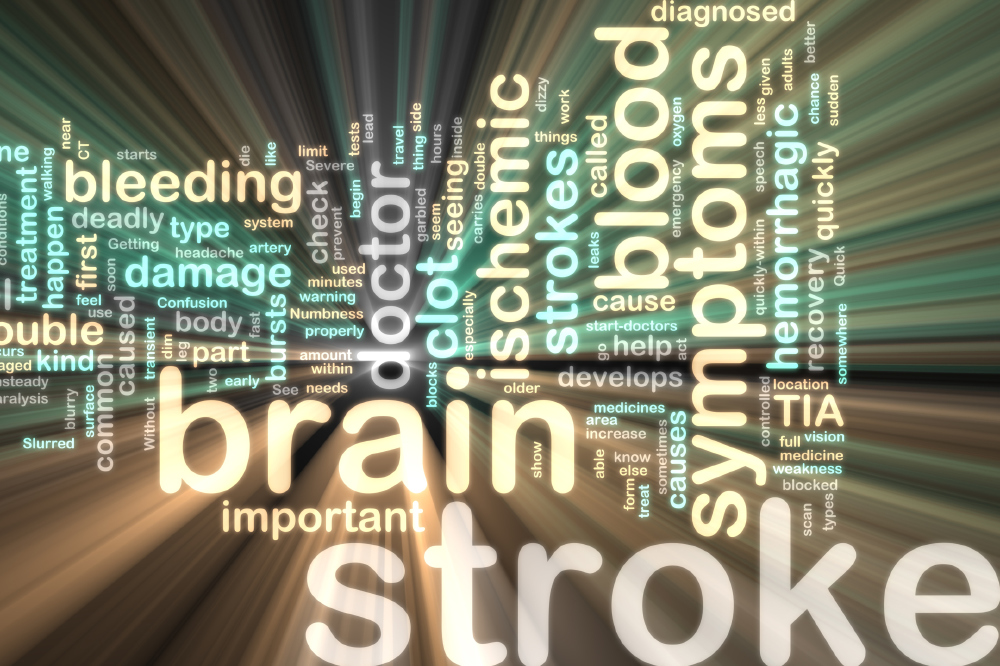Today is World Stroke Day, and this year's campaign focuses on Women and Stroke as it kills three times as many women as breast cancer and is the third leading cause of death for women in the UK.

Do you know how you can prevent a stroke?
But do you know how to safeguard your health against stroke?
High blood pressure is a big risk factor of stroke and is a common problem, affecting about 10 million people in the UK. It often has no symptoms: so having it measured is the only way to tell if your blood pressure is high. If you have high blood pressure and it is not treated and kept under control, it increases your risk of having a stroke. The Stroke Association encourages all members of the public to know their blood pressure and to get it checked regularly.
Stroke can be largely preventable through lifestyle management and knowing whether you're at risk can help you take measures to reduce chances of having a stroke.
Dr Dale Webb, director of Research and Information at the Stroke Association explains: "Every year there are approximately 152,000 strokes in the UK. Stroke can affect anyone at any age, including children and babies. High blood pressure is the biggest controllable risk factor for stroke, yet it has no symptoms and can affect people of all backgrounds and lifestyles.
"Stroke is devastating, and many stroke survivors who are recovering from one of the most frightening experiences of their lives face the additional challenge of visual impairment. This can dramatically affect people's quality of life, independence and confidence."
A 73-year-old who had a mini- stroke detected during an eye test is backing a collaboration between Vision Express and the Stroke Association.
Colin Davenport was immediately referred to a stroke specialist after a Vision Express optometrist identified stroke as a critical concern. Doctors then found that the arteries supplying blood to Colin's brain were 80% blocked. This had caused a mini-stroke, also known as a TIA (transient ischaemic attack).
Within less than two weeks of his eye test, Colin underwent a procedure to remove the deposits in one of Colin's arteries and improved blood flow to his brain. Colin has now fully recovered from the episode and is urging others to be aware of the potentially devastating vision implications in the aftermath of stroke.
Up to 60% of stroke survivors will experience visual problems, yet one in three stroke survivors are not warned that sight loss could be a problem or that treatment and support is available. Via an eye test, Vision Express optometrists are able to identify indicators of increased blood pressure, which is the biggest stroke risk.
In a special collaboration, Vision Express has joined forces with the Stroke Association to offer free blood pressure checks in four stores across London, to mark World Stroke Day on 29 October 2014.
High blood pressure is the biggest risk factor for stroke and 40% of strokes could be prevented if people had their blood pressure checked and acted on any issues. To help address the problem, the Stroke Association is introducing its 'Know Your Blood Pressure' event at Oxford Street East, Islington, Holborn and Westfield White City Vision Express stores. Staff from the charity will carry out the testing and also provide advice on the warning signs of stroke, and ways people can conquer the condition.
The 'Know Your Blood Pressure' events are just one part of the collaboration between the Stroke Association and Vision Express. It will also see Vision Express' expert optometrists trained on dealing with vision issues associated with stroke, and help survivors and their families access vital stroke information.
Did you know?
- Only 62% of people in the UK know what a stroke is.
- Only 48% of those understand that high blood pressure is the biggest risk factor.
- Stroke is the third leading cause of death in women in the UK.
- One in five women will have a stroke in their lifetime.
- Three times as many women die from stroke compared to breast cancer.
- 61% of all stroke deaths are female.
Omar Hassan, head of Professional Services at Vision Express added: "World Stroke Day is an important opportunity to support the Stroke Association in getting the message across about the condition and its impact on sight. Early signs of stroke can manifest as vision disturbances, and many people don't realise the breadth of health conditions we can identify with a thorough eye test. It is vital to have a routine exam at least every two years and to see an optometrist straight away if you experience any issues with your sight."

